
The World Trade Organization (WTO) is an intergovernmental organization headquartered in Geneva, Switzerland that regulates and facilitates international trade. Governments use the organization to establish, revise, and enforce the rules that govern international trade in cooperation with the United Nations System. The WTO is the world's largest international economic organization, with 164 member states representing over 98% of global trade and global GDP.
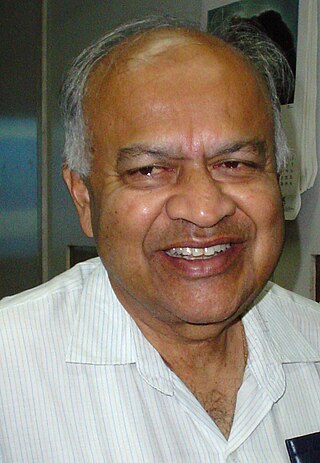
Jayant Vishnu Narlikar is an Indian astrophysicist and emeritus professor at the Inter-University Centre for Astronomy and Astrophysics (IUCAA). He developed with Sir Fred Hoyle the conformal gravity theory, known as Hoyle–Narlikar theory. It synthesises Albert Einstein's theory of relativity and Mach's principle. It proposes that the inertial mass of a particle is a function of the masses of all other particles, multiplied by a coupling constant, which is a function of cosmic epoch.
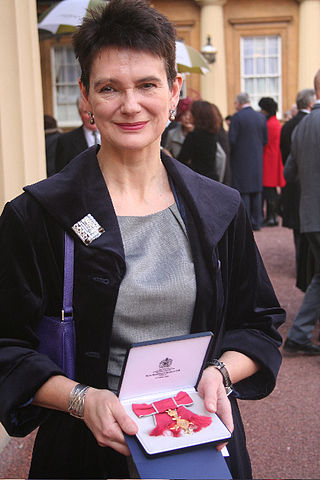
Dame Diane Coyle is a British economist. Since March 2018, she has been the Bennett Professor of Public Policy at the University of Cambridge, co-directing the Bennett Institute.
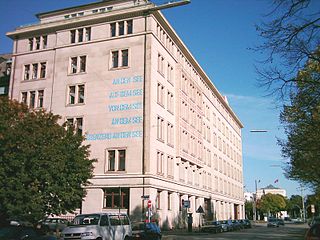
The German Institute for Global and Area Studies, also known as GIGA, is a German research institute. It analyses political, economic, and social developments in Africa, Asia, and Latin America, as well as the Middle East. It combines its analysis with comparative research on international relations, development and globalisation, violence and security, and political systems. GIGA advises the Federal Foreign Office and other branches of the federal government. The institute is based in Hamburg and has an office in Berlin.
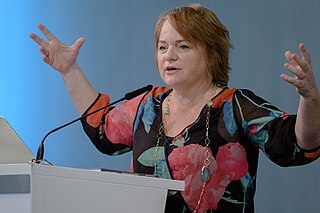
Kalypso Aude Nicolaïdis is a Franco-Greek academic, currently Professor of International Relations and Director of the Center for International Studies at Oxford University, England. She teaches in the areas of European integration, international relations, international political economy, negotiation and game theory and research methods as University Lecturer in the Department of Politics and International Relations. In 2020, Nicolaïdis joined the School of Transnational Governance at the European University Institute as a full time professor.

Anne Osborn Krueger is an American economist. She was the World Bank Chief Economist from 1982 to 1986, and the first deputy managing director of the International Monetary Fund (IMF) from 2001 to 2006. She is currently the senior research professor of international economics at the Johns Hopkins School of Advanced International Studies in Washington, D.C. She also is a senior fellow of Center for International Development and the Herald L. and Caroline Ritch Emeritus Professor of Sciences and Humanities' Economics Department at Stanford University.

Deepak Nayyar is an Indian economist and academician. He is a professor of economics at Jawaharlal Nehru University, New Delhi and Chairperson of the Board of Governors of Centre for the Study of Developing Societies (CSDS) New Delhi. He has taught at the University of Oxford, the University of Sussex, the Indian Institute of Management Calcutta (IIM-C), and the New School for Social Research, New York City. He was Vice Chancellor of the University of Delhi from 2000 to 2005.

Pranab Bardhan is an Indian economist who has taught and worked in the United States since 1979. He is Professor Emeritus of Economics at the University of California, Berkeley.
Martin James DauntonDLitt LittDFLSW is a British academic and historian. He was Master of Trinity Hall, Cambridge, between 2004 and 2014.
Rorden Wilkinson FAcSS FRSA is a British academic and author. He is Deputy Vice-Chancellor (Academic) and Professor of International Political Economy at Macquarie University, Sydney, Australia. He was previously Pro Vice-Chancellor and Professor of International Political Economy at the University of New South Wales, Sydney, Australia; Deputy Pro Vice-Chancellor, Professor of Global Political Economy, and a Fellow of the UK Trade Policy Observatory at the University of Sussex; and Professor of International Political Economy and Research Director of the Brooks World Poverty Institute at the University of Manchester. He did his doctoral work and began his academic career at the University of Auckland, New Zealand. He has been a visiting scholar at Brown University, USA, Wellesley College, USA, and the Australian National University.

Sebastian Heilmann is a German political scientist and sinologist. He serves as the founding president of the Mercator Institute for China Studies (MERICS) in Berlin. Heilmann is a professor for the political economy of China at the University of Trier with many publications on China's political system, economic policy and international relations.
Fen Osler Hampson is Chancellor's Professor and Professor of International Affairs at Carleton University and President of the World Refugee & Migration Council. He was a Visiting Fellow at The New Institute and a Distinguished Fellow and Director of Global Security Research at The Centre for International Governance Innovation. He was Co-Director of the Global Commission on Internet Governance. He was elected a Fellow of the Royal Society of Canada.

Julie Elizabeth Smith, Baroness Smith of Newnham is an academic specialising in European politics and a Liberal Democrat politician. From 2003 to 2015, she was a local councillor on Cambridge City Council. Since September 2014, she has been a life peer and a member of the House of Lords.
Pamela S. Chasek is a professor in the Department of Political Science at Manhattan College, and editor of the Earth Negotiations Bulletin. She was an adjunct professor at Columbia University's School of International and Public Affairs from 1996-2000. She is widely published on the topic of international environmental policy.
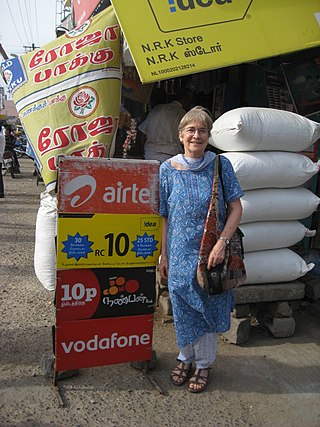
Barbara Harriss-White is an English economist and emeritus professor of development studies. She was trained in geography, agricultural science, agricultural economics and self-taught in development economics. In the 1990s, she helped to create the multi- and inter- disciplinary thematic discipline of development studies in Oxford Department of International Development; and in 2005-7 founded Oxford's Contemporary South Asia Programme. She has developed an approach to the understanding of Indian rural development and its informal economy, grounded in political economy and decades of what the economic anthropologist Polly Hill called ‘field economics’.

Lavanya Rajamani is an Indian lawyer, author and professor whose area of expertise is international climate change law, environmental law, and policy. She is currently a professor of International Environmental Law at the Faculty of Law, University of Oxford, a Yamani Fellow in Public International Law at St Peter's College, Oxford, and a visiting professor at the Centre for Policy Research.
Markus Gehring is an international jurist specialised in European and international trade law, and both fellow and director of studies in law at Hughes Hall at University of Cambridge. He is also a senior fellow at the Centre for International Governance Innovation.

The Ladies Dining Society was a private women's dining and discussion club, based at Cambridge University. It was founded in 1890 by the author Louise Creighton and the women's activist Kathleen Lyttelton. Its members, most of whom were married to Cambridge academics, were believers in women’s education and were active in the campaign to grant women Cambridge degrees. Most were strong supporters of female suffrage.

Carolina Cristina Alves is an Associate Professor at the University College London Institute for Innovation and Social Purpose. She previously was the Joan Robinson Research Fellow in Heterodox Economics at Girton College at the University of Cambridge. She is a co-founder of Diversifying and Decolonising Economics D-Econ, and an editor of the Developing Economics blog. She sits on the Rebuilding Macroeconomics Advisory Board, the Progressive Economy Forum Council (PEF) and Positive Money.
Hager Ali is a German political scientist, university lecturer and freelance journalist. As research fellow at the German Institute for Global and Area Studies (GIGA) in Hamburg and freelance journalist, she has published articles on her research focusing on civil-military relations in authoritarian regimes in the Middle East and North Africa. She also communicates her research in German and international media, as well as in public events.













